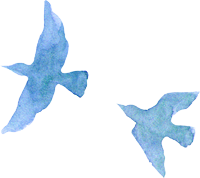for Coaches
As coaches, the most important element we bring to our coaching work is ourselves. We are the instruments through which our expertise and lived experience are played through. Playing our instruments in tune with our clients as fluidly and expressively as possible enables us to deliver our deepest service.
To play at their very best, our instruments need to be cared for, consistently tuned and regularly practiced. In coaching, one way we can tend to our instrument is by engaging in supervision. Coaching supervision enables you to play your coaching instrument with ever increasing mastery. Through exploratory and illuminating dialogue, supervision is one of the richest and most creative, generative, and productive ways to facilitate your learning and growth as a coach.
Coaching Supervision
During a supervision session, learning is real time in the conversation itself and arises from the relationship of trust built between the coach and the supervisor. Each conversation is unique and informed by your aspirations, reflections and challenges.
You have the opportunity to be supported in all 3 functions of supervision – in your personal and professional development, in the sharpening of your coaching interventions and/or in feeling more restored and resourced.
After our exploration, you come away with new insights, ways to think about yourself and your coaching and with increased clarity about next steps. Your learning can be applied immediately in your client interactions or practice development.
About Coaching Supervision
What Is Coaching Supervision?
“Coaching Supervision focuses on the development of the coach’s capacity through offering a richer and broader opportunity for support and development. Coaching supervision creates a safe environment for the coach to share their successes and failures in becoming masterful in the way they work with their clients.” The International Coach Federation
Supervision provides the opportunity for a generative dialogue between a coach and a supervisor. In this conversation, the supervisor holds space for the coach’s deep curiosity, explorative inquiry, creativity and learning. It’s a way for a coach to get additional perspective, feedback and support on both the process and content of their coaching. It’s a very present practice in that what’s alive for the coach is the catalyst for unfolding reflection and emergent possibilities. No two conversations are ever alike.
Functions of Supervision
Supervision provides three broad functions:
- Formative – Addresses coaches’ ongoing personal and professional development and provides opportunities to integrate learning and experience
- Normative – Focuses on the quality and effectiveness of coaches’ coaching interventions and is informed by the competencies and ethics codified by the ICF
- Restorative – Provides coaches with emotional support so they can source their work with less effort and more resilience and resourcefulness.
Supervision is not performative, in that the supervisor does not assess coaches’ work nor provide any kind of evaluation about coaches or their coaching.
Why Supervision?
Good Professional Practice
Learning never stops. Every coaching session provides grist for the developmental mill. Supervision enables focused and ongoing learning – about yourself, your client, your relationship with your client and the environment and systems they work within. Additionally, what can arise between you and your supervisor could be as insightful and catalytic as your work with your client.
Client situations – especially ones with multiple stakeholders – can often generate ethical challenges. As the coach, you are often in the midst of multiple systems. When boundaries get crossed, confusion and uncertainty may arise. It can be helpful to step back, discuss the situation and come away with a new perspective. This helps you get clear on what to do next and feel confident in your client conversations.
Increases Your Ability to Coach and Serve Clients
Sometimes we are just not as effective as we’d like to be or we are more reactive than we should be. Limitations in the expression of our craft can come from gaps in our experience or the arising of unconscious elements (e.g. blindspots, assumptions, or judgments) that can result in reactivity or ineffectiveness. These limitations can derail our best intentions. And so often, we aren’t immediately aware this is happening until we find ourselves reflecting on it later or it is brought to our attention by the client.
Clients are much better served when their coach is in supervision – especially those clients who seem the most difficult or inexplicably triggering. Exploration of challenging client situations can provide a powerful boost to both insight and impact.
Connects You with a Like-Minded Colleague
It can be lonely being a coach. Talking about what’s happening in your coaching practice supports connection and learning. Supervision provides a safe space to explore and discuss that which has you feeling your most vulnerable and uncertain with someone who has as deep an interest in your growth and that of your client as you do.
Differentiates You from Other Coaches
Supervision indicates that you are committed to your ongoing professional development and improving your skill and capacity. It role models to your clients the importance of continuing to learn and grow in your craft.
Contributes toward ICF CCEs
Coaches may count up to 10 hours of Supervision as Core Competency credits toward their CCEs for credential renewal with the ICF.


